I'm looking for the (hopefully built-in) function in Julia that calculates the number of combinations

I could obviously implement my own using factorials, but I'm almost certain somebody has already worried about this.
I'm looking for the (hopefully built-in) function in Julia that calculates the number of combinations

I could obviously implement my own using factorials, but I'm almost certain somebody has already worried about this.
Chances are you're looking for the binomial function that returns the binomial coefficient. It's currently in base
Here are some simple examples:
julia> binomial(2,1)
2
julia> binomial(3,2)
3
If you want to see the actual combinations, then you can use the Combinatorics package's combinations(a,n) function. This gives you an iterable with all the possible combinations of length n of array a.
julia> using Combinatorics
julia> collect(combinations(1:3,2))
3-element Array{Array{Int64,1},1}:
[1, 2]
[1, 3]
[2, 3]
Be aware to use BigInt if you want to take binomial of "big" numbers like 200
julia> binomial(3,2)
3
julia> binomial(300,200)
ERROR: OverflowError: binomial(300, 200) overflows
Stacktrace:
[1] binomial(::Int64, ::Int64) at ./intfuncs.jl:876
[2] top-level scope at none:0
julia> binomial(BigInt(300),BigInt(200))
4158251463258564744783383526326405580280466005743648708663033657304756328324008620